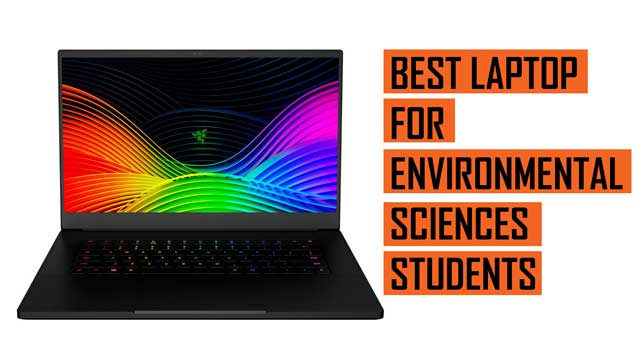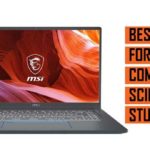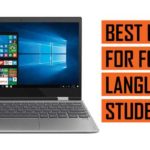As an Environmental Science student, your laptop is a field companion, a data cruncher, a lab report generator, and a GIS processing machine. You need a device that supports both analytical tasks and portable learning, and this guide is built to help you find exactly that. We’ve written it for students who navigate between lecture halls, lab simulations, and rugged outdoor research sites, and who need a laptop that can keep up.
We understand your challenge. You’re managing multiple academic demands—from statistical software like R or SPSS, to environmental modeling tools like ArcGIS or QGIS, to cloud platforms like Google Earth Engine. All that, and you still need to carry your laptop to field sites, group projects, and late-night study sessions.
So here’s the common pain point: most laptops don’t cater to the cross-disciplinary and cross-environmental demands of environmental science. They’re either too heavy to carry around all day, not powerful enough to handle mapping software, or too delicate for real-world exposure. That’s where many students get stuck—either compromising performance or sacrificing portability.
We’ve built this guide to eliminate that compromise.
Environmental science spans data analysis, spatial modeling, reporting, and presentation—all within often unpredictable environments. That’s why we focus on laptops that balance durability, processing power, battery life, and portability. These aren’t gaming laptops or ultra-thin fashion devices. These are reliable, balanced machines made for real work.
Here’s how we evaluate what “best” means for you:
We assess laptops based on the software and scenarios you’re likely to encounter. These include:
- GIS and mapping platforms (ArcGIS, QGIS, Google Earth Pro)
- Data analysis and statistical tools (RStudio, Python, Excel, MATLAB)
- Document creation and collaboration (Microsoft Office, LaTeX, Google Workspace)
- Occasional simulation work (environmental modeling tools or web-based apps)
So, what do we look for in the best laptops for environmental science students?
First, processing power matters. You’ll want at least a modern Intel Core i5 or AMD Ryzen 5 processor, and we strongly recommend quad-core performance or better for GIS tasks. These ensure that your system doesn’t lag during spatial analysis or when running Python scripts.
Second, RAM capacity is critical for multitasking and software like ArcGIS Pro, which can be memory-hungry. We set the bar at a minimum of 16GB of RAM for handling large datasets or multiple programs.
Third, storage speed and capacity influence everything from boot times to file transfers. All our picks feature SSD storage—512GB or higher— for fast access to maps, reports, and coursework.
Fourth, display quality and size play a big role in how effectively you can interact with maps and graphs. You need at least a 13″ Full HD screen for legibility, with good brightness and wide viewing angles—essential for both indoor and outdoor use.
Fifth, battery life and durability make a difference in your ability to work on the go. Our picks include models with 8+ hours of real-world battery performance, solid hinge designs, and durable chassis—some even with MIL-STD certifications for rugged conditions.
Sixth, portability and weight matter if you’re moving across campus or trekking to field sites. We focus on laptops under 4 lbs, with compact footprints and strong battery efficiency—because it’s not just about power, it’s about mobility.
Lastly, we consider connectivity and expandability—USB-C, HDMI for external monitors, SD card readers for data collection, and Wi-Fi 6 for fast campus network access.
You’ll also find use-case-specific recommendations:
- For GIS-intensive coursework, we include laptops with stronger integrated GPUs or discrete graphics cards.
- If you’re on a budget, we include models that meet academic requirements without skipping essentials.
- For field-focused users, we include laptops with ruggedized features, spill-resistant keyboards, or longer battery life for off-grid use.
Now, here’s what you can expect from the rest of this guide:
We’re about to walk you through a hand-picked selection of laptops that we’ve vetted for performance, reliability, and suitability for environmental science workflows.
You can also have a look at the best laptop for Agricultural Sciences in addition to the best laptops for Pharmacy Students.
Best 2026 Laptops for Environmental Science Students:
Contents
- Lenovo Legion 5 Laptop
- Microsoft Surface Laptop 4 15” Ryzen 7
- Razer Book 13 Laptop i7 - 16GB - 512GB
- HP 14 inch HD Laptop AMD Athlon Silver 3050U
- Apple MacBook Pro M1 13-inch, 8GB RAM, 256GB SSD
- LG gram Laptop 15.6 inch
- HP ENVY x360 Convertible 15-inch Laptop
- Lenovo IdeaPad 3 17.3 inch Laptop
- MSI GP65 Leopard 10SDK-049 i7 GTX 1660 Ti
- MSI Prestige 14 A10SC-020 14 Laptop
- Apple MacBook Air M1 13-inch, 8GB RAM, 512GB
Lenovo Legion 5 Laptop |
|
|---|---|
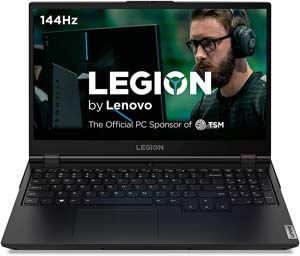 Check This on Amazon |
|
| CPU | AMD Ryzen 7 4800H Processor |
| GPU | NVIDIA GTX 1660Ti |
| Display Size | 15.6 inches |
| Display Resolution | 1920 x 1080 Pixels |
| RAM | 16 GB DDR4 |
| Storage Space | 512GB SSD |
| Operating System | Windows 10 |
| Ports | USB 3.1 Gen 1 ports, one USB-C port, HDMI, Ethernet, and an audio jack. |
| Dimensions (L x W x H) | 14.29 x 10.22 x 0.98 inches |
| Weight | 5.41 pounds |
| Pros | Display, Performance |
| Cons | Weight |
Microsoft Surface Laptop 4 15” Ryzen 7 |
|
|---|---|
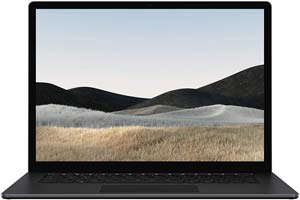 Check This on Amazon |
|
| CPU | AMD Ryzen 7 |
| GPU | AMD Radeon Vega 11 |
| Display Size | 15 inches |
| Display Resolution | 2496 x 1664 Pixels |
| RAM | 8 GB DDR4 |
| Storage Space | 512GB Solid State Drive |
| Operating System | Windows 10 |
| Ports | USB, Ethernet, Audio, Mini Display |
| Dimensions (L x W x H) | 10.76 x 14.6 x 2.12 inches |
| Weight | 3.4 pounds |
| Pros | Performance, Display |
| Cons | Storage |
Razer Book 13 Laptop i7 - 16GB - 512GB |
|
|---|---|
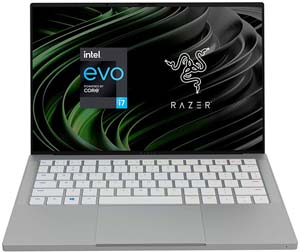 View This on Amazon |
|
| CPU | Intel Core i7-1165G7 4 Core |
| GPU | Intel Iris Xe |
| Display Size | 13.4 inches |
| Display Resolution | 1920 X 1080p Touch Screen |
| RAM | 16GB |
| Storage Space | 512GB SSD |
| Operating System | Windows 10 |
| Ports | USBs, Ethernet, Audio Out |
| Dimensions (L x W x H) | 11.6 x 0.6 x 7.8 inches |
| Weight | 3.09 pounds |
| Pros | Lightweight, Quality Display |
| Cons | NA |
HP 14 inch HD Laptop AMD Athlon Silver 3050U |
|
|---|---|
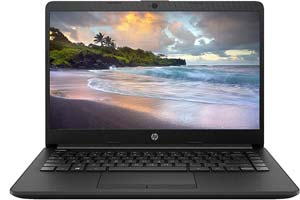 View This on Amazon |
|
| CPU | AMD Athlon Silver 3050U |
| GPU | AMD Radeon |
| Display Size | 14 inches |
| Display Resolution | 1366 x 768 |
| RAM | 8GB DDR4 RAM |
| Storage Space | 256GB SSD |
| Operating System | Windows 10 |
| Ports | USB, Ethernet, HDMI |
| Dimensions (L x W x H) | 12.8 x 8.9 x 0.8 inches |
| Weight | 3.24 lbs |
| Pros | Performance, Lightweight |
| Cons | NA |
Apple MacBook Pro M1 13-inch, 8GB RAM, 256GB SSD |
|
|---|---|
 Check This on Amazon |
|
| CPU | Apple M1 chip; 8-core CPU with 4 performance cores and 4 efficiency cores; 16-core Neural Engine |
| GPU | M1 8-core GPU |
| Display Size | 13.3-inch (diagonal) LED-backlit display with IPS technology |
| Display Resolution | 2560-by-1600 native resolution at 227 pixels per inch |
| RAM | 8GB RAM |
| Storage Space | 256GB |
| Operating System | MacOS |
| Ports | Two Thunderbolt / USB 4 ports with support for: Charging, DisplayPort Thunderbolt 3 (up to 40 Gbps), USB 3.1 Gen 2 (up to 10 Gbps) |
| Dimensions (L x W x H) | 13.41 x 11.97 x 0.61 inches |
| Weight | 3 Pounds |
| Pros | Performance, Battery Life |
| Cons | NA |
LG gram Laptop 15.6 inch |
|
|---|---|
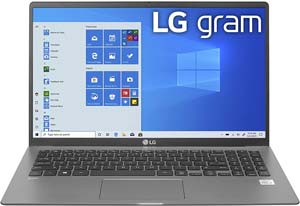 See This on Amazon |
|
| CPU | Intel 10th Gen Core i71065G7 CPU |
| GPU | Intel |
| Display Size | 15 6 |
| Display Resolution | 1920 x 1080 pixels |
| RAM | 8GB RAM |
| Storage Space | 256 GB M 2 Nm SSD |
| Operating System | Windows 10 |
| Ports | USB, Ethernet, HDMI |
| Dimensions (L x W x H) | 14.1 x 8.9 x 0.7 inches |
| Weight | 4.2 pounds |
| Pros | Performance, Display |
| Cons | |
HP ENVY x360 Convertible 15-inch Laptop |
|
|---|---|
 See This Latest Price on Amazon |
|
| CPU | 10th Gen Intel Core i7-10510U |
| GPU | Intel UHD Graphics |
| Display Size | 15.6 inches |
| Display Resolution | 1920 x 1080 pixels |
| RAM | 8GB |
| Storage Space | 512GB SSD |
| Operating System | Windows 10 |
| Ports | USB, Ethernet, HDMI |
| Dimensions (L x W x H) | 14.13 x 9.69 x 0.68 inches |
| Weight | 4.53 lbs |
| Pros | Battery Life, Performance |
| Cons | Na |
Lenovo IdeaPad 3 17.3 inch Laptop |
|
|---|---|
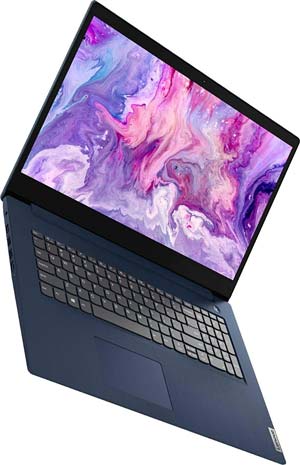 View This on Amazon |
|
| CPU | Intel Core i5-1035G1 Processor(4-Core, 1.0 GHz Up to 3.6 GHz, 6 MB Cache) |
| GPU | Intel UHD Graphics |
| Display Size | 17.3 inches |
| Display Resolution | 1600x900 pixels |
| RAM | 16GB RAM |
| Storage Space | 512GB SSD |
| Operating System | Windows 10 |
| Ports | USB, Audio, HDMI |
| Dimensions (L x W x H) | 15.83 x 11.07 x 0.78 inches |
| Weight | 15.83 x 11.07 x 0.78 inches |
| Pros | Large Display |
| Cons | NA |
MSI GP65 Leopard 10SDK-049 i7 GTX 1660 Ti |
|
|---|---|
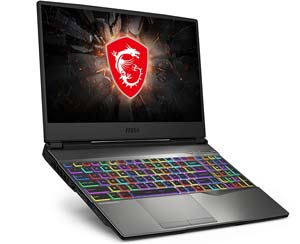 Check This Latest Price on Amazon |
|
| CPU | Core i7-10750H |
| GPU | NVIDIA GeForce GTX 1660 Ti 6G GDDR6 |
| Display Size | 15.6 inches |
| Display Resolution | 1920x1080 FHD |
| RAM | 64GB RAM |
| Storage Space | 512GB NVMe SSD |
| Operating System | Windows 10 |
| Ports | USB 3 2 Gen2 Type C *1 USB 3 2 Gen1 *2 Steel Series per-Key RGB with Anti-Ghost key+ silver lining 720p HD Webcam |
| Dimensions (L x W x H) | 14.08 x 10.57 x 1.08 inches |
| Weight | 5.14 pounds |
| Pros | Performance, Design, Ports |
| Cons | NA |
MSI Prestige 14 A10SC-020 14 Laptop |
|
|---|---|
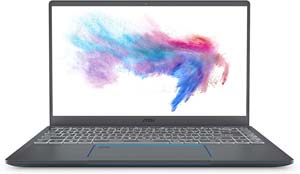 View This on Amazon |
|
| CPU | Core i5-10210u 1. 6 - 3. 9GHz Intel PTT |
| GPU | NVIDIA GeForce GTX1650 (max-q) |
| Display Size | 14 inches |
| Display Resolution | 1920 x 1080 pixels |
| RAM | 16GB (16G*1) LPDDR3 2133MHz |
| Storage Space | 512GB NVMe SSD |
| Operating System | Windows 10 |
| Ports | Thunderbolt 3*2 USB 2. 0 *2 LAN Intel Wi-Fi 6 ax201(2*2 ax) BT 5 720P HD Webcam |
| Dimensions (L x W x H) | 12.6 x 8.5 x 0.6 inches |
| Weight | 3.46 ounces |
| Pros | Lightweight, Good Performance |
| Cons | NA |
Apple MacBook Air M1 13-inch, 8GB RAM, 512GB |
|
|---|---|
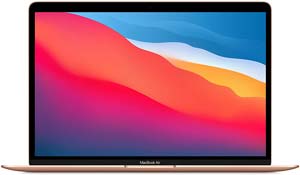 Check This on Amazon |
|
| CPU | System on Chip (SoC) Apple M1 chip; 8-core CPU with 4 performance cores and 4 efficiency core |
| GPU | Apple 8-core GPU |
| Display Size | 13.3-inch (diagonal) LED-backlit display with IPS |
| Display Resolution | 2560-by-1600 native resolution |
| RAM | 8GB |
| Storage Space | 512GB SSD |
| Operating System | MacOS |
| Ports | Two Thunderbolt / USB 4 ports with support for: Charging, DisplayPort, Thunderbolt 3 (up to 40 Gbps), USB 3.1 Gen 2 (up to 10 Gbps) |
| Dimensions (L x W x H) | 11.97 x 0.63 x 8.36 inches |
| Weight | 2.8 pounds |
| Pros | Performance, Lightweight |
| Cons | Storage |
MORE LAPTOP RECOMMENDATIONS
Best Laptops for Medical School
Best Laptops for Nursing Students
Latest Top Laptops for Food and Nutrition Students
Best Laptops for Biology Students

